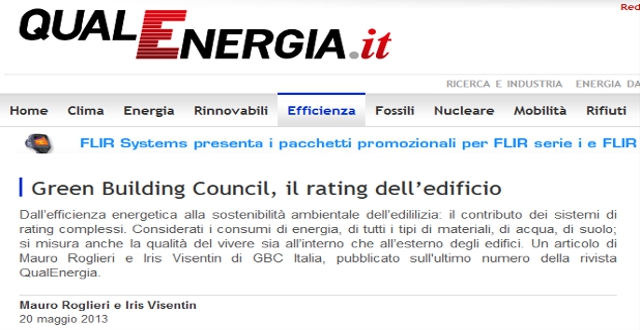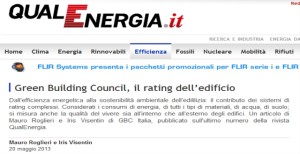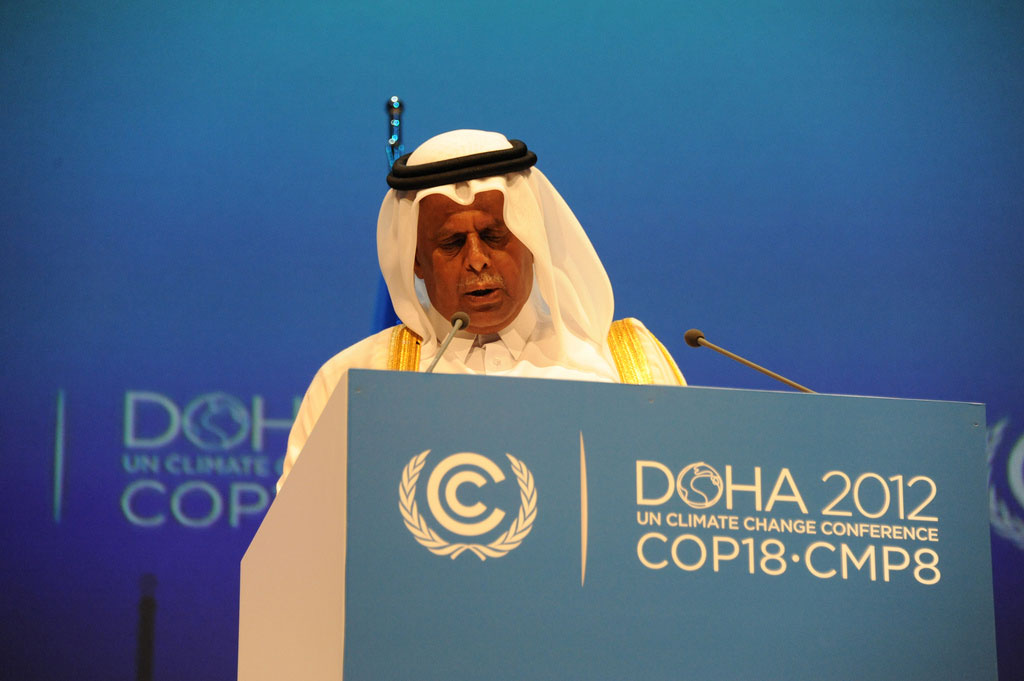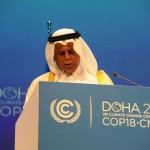Category Consulting
Commission clears way for harmonised free allocation to industry for phase three
The European Commission adopted a decision on Member States’ national implementation measures (NIMs) for phase three of the EU Emissions Trading System (EU ETS).
The actual number of allowances handed out each year will be adjusted by a ‘cross-sectoral correction factor’ which will vary each year. This will ensure that the total amount handed out for free does not exceed a maximum set in the ETS Directive. The correction factor will be 5.73 % in 2013 and will thereafter increase gradually to 17.56% in 2020.
It is now for Member State authorities to take the necessary steps to distribute the free allowances to installations via their accounts in the Union registry. This will take around one to three months depending on the procedures to be followed in each Member State.
The original article is available in the EC web page.
Emissions trading: “opt-out” monitoring plans to be submitted by 30 September 2013
Starting from 1 January 2013, the European Emissions Trading System entered its third phase of implementation. Italy applies the new regulation defined by the European Directive 2009/29/EC with the Decree n. 30 of 13 March 2013, that defines simplified procedures for small installation that requested the exclusion (also called “opt-out”) from the ETS.
The Italian Competent Authority, with Deliberation 16/2013, has recently approved a list of 166 small emitters and their annual emissions cap, defining the new requirements and procedures to fulfill. To be compliant to the system, small emitters shall submit the Monitoring Plan, in the new simplified format, no later than 30 September 2013.
Emissions Trading: new proposal of the EC to include the maritime sector by 1st July 2015
On 28 June 2013, the European Commission issued a proposal for maritime transport regulation on the monitoring, reporting and verification of carbon dioxide emissions from shipping sector. The COM(2013) 480 Proposal was drawn after a public consultation occurred during 2010 (SWD(2013) 237 final), involving the main stakeholders: private companies, ship-owners, ports operators, trade unions, EU Regional and National public authorities and NGOs.
The Regulation lays down rules for the emissions management of ships arriving at, within or departing from ports under the jurisdiction of a Member State – transport by 1 July 2015 – in order to promote the reduction of CO2 emissions from maritime transport in a cost effective manner.
At present the European Emissions Trading System includes the most energy-intensive industries and aviation. The extension of the system to the maritime sector would significantly broaden the binding system to reduce GHG emissions in Europe.

Our Article on Qualenergia
 Published on n.2/2013 of Magazine Qualenergia an article by Mauro Roglieri and Iris Visentin about LEED, GBC and more in general aboput the benefetis of adopting sustainability rating systems of buildings to reach CO2 reduction targets.
Published on n.2/2013 of Magazine Qualenergia an article by Mauro Roglieri and Iris Visentin about LEED, GBC and more in general aboput the benefetis of adopting sustainability rating systems of buildings to reach CO2 reduction targets.
Full article in Italian: http://www.qualenergia.it/articoli/20130520-green-building-council-il-rating-edificio
Directive 2009/29/EC transposed into Italian legislation
Decreto Legislativo n.30 of 13th March 2013, transposes Directive 2009/29/EC (Emissions Trading) into Italian legislation.
Art. 2 defines in clearer terms the scope of work of the Directive, in particular in realtion with the waste incineration plants.
GSE is appointed to set up and manage the auctioning platform for allowances. Most of the content of the decree reflects changes already introduced in the past months in operative terms by specific resolutions of the National Competent Authority.

Two DOHA weeks
Started the 26th of November and ending the 7th of December, COP18, the 18th conference of the United Nations Framework Convention on Climate Change is being held this year in DOHA, Qatar.
Back in 1992, countries joined an international treaty, the UNFCCC, to cooperatively consider what they could do to limit average global temperature increases and the resulting climate change, and to cope with whatever impacts were, by then, inevitable.
The Kyoto Protocol, defined during COP3 in Kyoto, and entered into force in 2005, legally binds developed countries to emission reduction targets. The Protocol’s first commitment period started in 2008 and ends in 2012.
At COP17 in Durban, governments of the Parties to the Kyoto Protocol decided for a second commitment period, from 2013 onwards, which could last 5 or 8 years.
In the last years, emissions of developing economies have doubled, becoming higher than those of developed countries. The urgency of coming to a new global agreement has been repeated many times this year by IEA, World Bank, PWC and many others, waiting for the publication of the fifth IPCC’s report. In fact, if we want to limit global warming to +2°C, we need to act now.
DOHA’s delegates need to work very hard during these two weeks, in order to sort out the three folowing main items:
- Kyoto Protocol: define the continuation until 2020 and probably its phase out, shifting the carbon market into a new agreement
- Long-term Cooperation Agreements, LCA: probably end the work, keeping what is good (Green Climate Fund and Technology Executive Committee) shifting it into the new agreement
- Ad-hoc Working Group on Durban Platform for Enhanced Action, ADP: main discussion item, set-up a strong path and working program until 2015, conveying issues like GCF, TEC, global carbon market, adaptation fund, etc.
The future agreement, based on ADP, needs to overcome distinctions between developing and developed economies (Annex I and non Annex I), if we really want to have some hope to meet the 2°C target (many think that we already missed this target).
Two weeks of very important work for the +10.000 delegates.
Sources: unfccc.int “DOHA Climate Change Conference”, David Hone “Expectations for COP18 in DOHA”, Carlo Carraro “AAA cercasi nuova architettura politica per il clima”.
New monitoring plans for ETS plants (2013-2020)
On Friday 16/11/2012, the Italian National Authority for the Emissions Trading Directive has published on its web site the deliberation n.27/2012, which establish the obligation for the Italian ETS plants to present the emissions monitoring plan in the new EU format for the period 2013-2020.
The Italian plants have time untill January 31st 2013 to fill in the excel template and sumbit it to the ETS committee. Some more days are needed to decide for the ‘opt-out’ plants, which are still waiting a final decision for their ‘exclusion’ from the standard obligations.
Untill the 31st of december 2012, the monitoring of emissions continues as of deliberation 14/2009 as modified by 14/2010.
For more information about the EU monitoring dispositions and templates: EU ETS monitoring
ETS third period new procedures
The European Commission has adopted this summer the new regulations on monitoring and reporting of greenhouse gas emissions and on verification and accreditation of verifiers under the EU Emissions Trading System, that will rule the third trading period of the EU ETS starting in January 2013.
The Italian ETS committee has approved the list of plants that fall within the scope of the Emissions Trading Directive, including the pre-allocation of free allowances (subject to EC review).
Operators of ETS plants will be asked in the coming months, to submit further documentation to align with the new regulation.
Green policies as economic driver for Italy
The contribution of the Environmental Ministry to the growth plan being discussed in these days by the Government after the summer holidays, has been published last week on the Ministry official website.
The framework described in the document is quite comprehensive and confirms the effort to put Italy back in track with the decarbonization of the economy addressed by several EU Directives. Various policies are already in place, but suffered in the past months of many delays in their actuation, due to conflicts of competences between different Governmental departments.The current technical Government could effectively help to solve several impasses.
For more information about the contribution (in Italian): http://www.minambiente.it/home_it/showitem.html?item=/documenti/comunicati/comunicato_0438.html&lang=it
